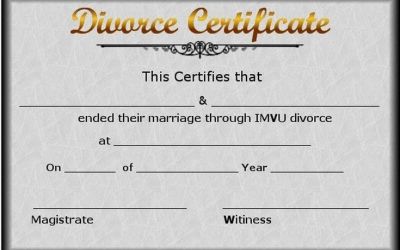Can a Muslim Marry a Non-Muslim? Key Considerations and Sharia Law Guidelines in 2025
Table of Contents ▼
Marriage is a beautiful and essential aspect of life, especially for Muslims, where it is seen as spiritually significant.
But when love surpasses religious boundaries, it may bring complexities, particularly under Sharia law. One question that frequently arises is: can a Muslim marry a non-Muslim?
Let’s take a closer look at this topic, with clear references from reliable Islamic and government sources.
Marriage and Sharia Law
Marriage in Islam is not just a legal contract but a sacred union based on love, mercy, and faith. Sharia law, which governs the lives of Muslims, outlines specific rules regarding marriage.
One of the most important factors in a successful marriage under Sharia law is compatibility in faith. Islam holds religion as the foundation for family life, influencing decisions and the raising of children. According to the UAE government portal, marriages under Sharia law require that both spouses share similar religious backgrounds.
The question then arises: can a Muslim marry a non-Muslim? The answer varies depending on whether the Muslim in question is male or female, as Sharia law treats these situations differently.
Can a Muslim Man Marry a Non-Muslim Woman?
In Islam, a Muslim man can marry a non-Muslim woman, but there are strict guidelines. The Quran and Islamic scholars state that a Muslim man can marry a woman from the “People of the Book”—that is, practicing Jews or Christians.
If a Christian or Jewish woman is known for her religious devotion, chastity, and faithfulness, she is considered a suitable partner for a Muslim man.
However, the permission is conditional. First, the woman must be a sincere follower of her faith; atheists or those who do not practice any religion are not eligible.
Second, she must lead a modest and chaste life. Third, the marriage should not pose any threat to the Muslim man’s religious commitment or the Islamic upbringing of their future children.
While interfaith marriages are legally allowed in countries like the UAE, societal pressures often encourage Muslims to marry within their faith due to potential challenges surrounding religious holidays, family expectations, and raising children.
Can a Muslim Woman Marry a Non-Muslim Man?
In Islam, a Muslim woman is not permitted to marry a non-Muslim man, even if he is from the “People of the Book” (Jews or Christians). While a Muslim man may marry a non-Muslim woman, this does not apply to Muslim women, and this prohibition is based on clear Islamic teachings from the Quran and scholars.
The rationale behind this is connected to the leadership structure of an Islamic marriage, where the husband typically assumes a leadership role within the family.
Islam aims to protect a Muslim woman’s faith by ensuring that her religious beliefs are respected in the home. The concern is that a non-Muslim husband might not support his wife’s faith, potentially leading her and their children away from Islam.
This ruling is intended to maintain the Muslim woman’s religious integrity and ensure that future generations are raised within the Islamic faith.
Interfaith Marriage in Today’s World
Today, people from various cultures and religions interact more frequently than ever before, leading to an increase in interfaith marriages.
As these relationships become more common, many countries have had to adjust their legal systems to address this new reality. But the question that still stands is: Can a Muslim marry a non-Muslim?
Muslim-majority countries take different approaches when it comes to interfaith marriages. For example, in the UAE, non-Muslims can marry under civil law, but Muslim marriages are required to follow Sharia law.
This distinction ensures that Islamic values and practices are respected in Muslim marriages. On the other hand, Saudi Arabia applies Sharia law uniformly across all marriages, including those involving non-Muslims.
While global shifts in culture continue to influence the law, the basic tenets of Sharia law remain largely unchanged in many countries.
Conversion as a Solution?
When a non-Muslim partner chooses to convert to Islam, the barriers to marriage can be removed. However, it’s crucial to understand that conversion must be genuine.
Islam stresses that embracing the faith should come from sincere belief and commitment, not merely to facilitate marriage. Love for a person should never be the sole reason for converting to Islam.
Islamic scholars advise couples considering conversion to take the time to learn about Islam properly. This ensures that the decision is heartfelt and not made impulsively.
True conversion involves a genuine connection to the faith and an understanding of its teachings, leading to a deeper spiritual commitment. A thoughtful and sincere conversion strengthens both the individual’s faith and the marital bond.
Ready to Start Your Journey Together?
Sharia law is designed to protect faith, family, and future generations, and its guidelines are intended to simplify life, not make it harder.
If you or someone you know is considering an interfaith marriage, it’s wise to consult with knowledgeable scholars to gain clarity on both the religious and legal requirements.
At Easy Wedding, we specialize in making your Islamic marriage journey simple, beautiful, and stress-free, no matter where you are in your faith journey.
Whether you’re preparing for a traditional Nikah or navigating an interfaith marriage, our team is here to support you every step of the way.
Visit Easy Wedding today and take the first step toward your happily ever after!


